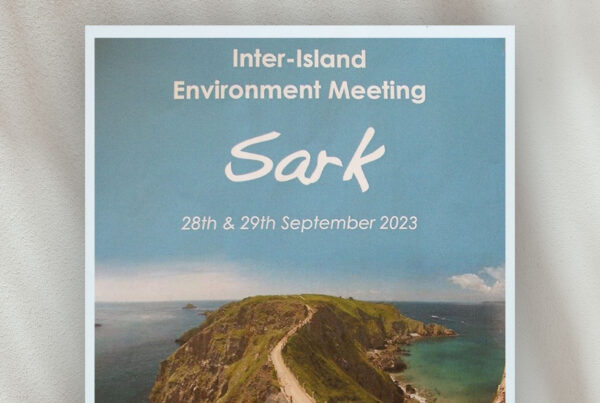La Societe is delighted to have selected Stefan Yerby for this year’s Science and Nature Grant. Stefan will be Investigating Seaweed’s Potential to Reduce Environmental Impact of Livestock Farming.
Stefan is undertaking a project that combines his passion for livestock farming with academic research, aiming to develop dietary intervention strategies that can mitigate climate change and improve the sustainability of livestock farming. Stefan will be conducting research in August to investigate the efficacy of seaweed species found on Guernsey’s coastline in manipulating rumen fermentation kinetics. The project aims to improve the environmental sustainability of ruminant production by reducing the output of pollutants, such as methane and ammonia, through the manipulation of microbial populations in the rumen. Stefan will harvest selected species of seaweed from Guernsey’s shores, preserve the samples, and transport them to a lab in Glasgow. In vitro experimentation using rumen fermentation mimicking apparatus will be conducted to test the samples under controlled conditions. Parameters such as gas production and composition, digestibility, volatile fatty acid production, and dry matter disappearance will be analysed to assess the efficacy of different seaweed species in decreasing the environmental impact of ruminants.
You can read more from Stefan’s below.
Born and raised in Guernsey, livestock have been my passion since a young age. At 13 I started my own flock of sheep which rapidly developed into a menagerie of poultry, pigs, goats, and cattle, as well as working on one of Guernsey’s dairy farms. Admittedly, I found animals far more fascinating than my secondary education. At 21 I decided it was time to broaden my horizons and move off island, leading me to undertake a BSc in Veterinary Science at Aberystwyth University, 2 years of which I completed at Guelph University in Canada. Realising that academia paired with cows is in fact a fantastic combination, I went on to complete my MSc in Livestock Science, where I worked at the Centre of Excellence for Bovine Tuberculosis in Wales, modelling the transmission of tuberculosis between cattle and badgers. Still not finished with education, last year I accepted a PhD candidacy at The University of Glasgow, with my current research focussing on improving the environmental sustainability of ruminant production. Given the climate crisis, as well as a booming world population, there is an ever-increasing need to improve the sustainability and efficiency of livestock farming. Ruminants play a key role in global food system, however, intensive farming practices, propagated by consumer demand for cheap animal-based products, have negative consequences for the environment through pollutants, mainly greenhouse gas emissions and soluble nitrates. My research is exploring the utility of natural compounds at increasing the feed efficiency of cattle, whilst diminishing their output of pollutants, including methane and ammonia, through the manipulation of the microbial populations which inhabit the rumen. The objective of this work is to develop dietary intervention strategies which can be used as climate change mitigation tools.
Macroalgae (seaweed) contain a diverse number of secondary metabolites, some of which have beneficial properties for reducing methane production from cattle. Some red and brown macroalgae species contain compounds called bromoforms, which inhibit the formation of methane in the rumen, with colleagues achieving up to 90 % reduction in enteric methane production in previous research. La Soceite’s grant is going to fund a project investigating the efficacy of species of seaweed which grow on Guernsey’s coastline at manipulating rumen fermentation kinetics. Guernsey has one of the most diverse macroalgal communities in the British Isles and it is my hope that beneficial environmental outcomes will be realised from some of the species trialled. This research will begin in August, with the harvesting of small quantities of select species of seaweed from Guernsey’s shores. Samples will then be anaerobically preserved before transport to the labs in Glasgow where experimentation employing in vitro techniques with apparatus that mimics rumen fermentation will take place. This allows for the testing of many samples under controlled conditions, without the need for research animals in preliminary testing. Macroalgae will be combined in a ration typical to that fed to dairy cattle and then incubated in rumen digestion media for 72 hours, with the gas produced from fermentation collected and measured throughout. Following the incubation, analyses on gas production and composition, digestibility, volatile fatty acid production, and dry matter disappearance of feedstuffs, will be performed. These parameters will indicate the efficacy of the different macroalgae species at decreasing the environmental output from ruminants, as well as testing functional traits such as digestibility, which are essential to consider when developing feed-based strategies for livestock. I am sincerely grateful to La Societe Guernesiaise for awarding me this grant, and I am thrilled to undertake research back on my home island.





